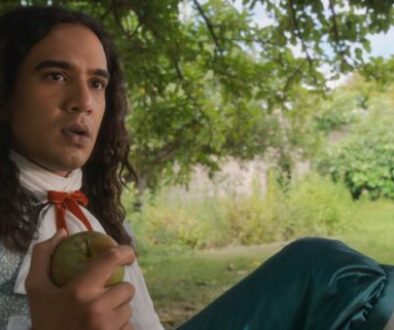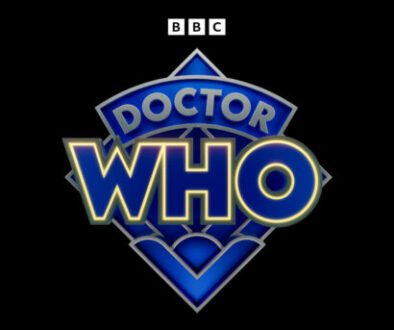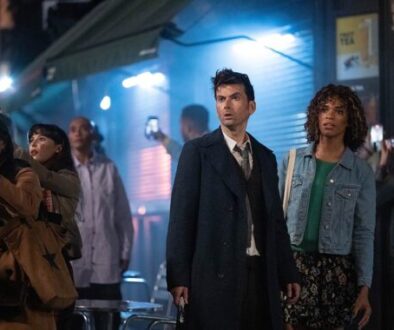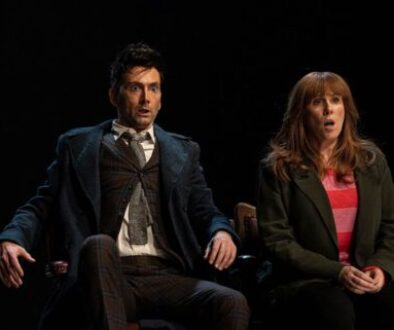2nd Opinion, Take 1 “The Giggle” – The Standout Special

Gustaff Behr reviews the third 60th anniversary special.
In the grand conclusion of Doctor Who’s 60th Anniversary, “The Giggle” not only signifies the end of the second David Tennant era and the beginning of the Ncuti Gatwa era, but also as a significant milestone in the expansive Doctor Who mythos—or does it?
Right from the outset, the standout component of this absurdly named special is undeniably Neil Patrick Harris. His portrayal of the celestial Toymaker is nothing short of phenomenal. From the moment he appeared on-screen, I couldn’t help but feel a profound sense of regret, realizing that this might be our sole encounter with him in the role. While I appreciate RTD’s deliberate choice to make the Toymaker a politically incorrect villain, there could have been more compelling reasons behind his frequent accent changes, which, I must admit, added to the entertainment. Drawing a parallel with the First Doctor’s initial triumph over the Toymaker by mimicking his voice, one could speculate that the Toymaker’s penchant for altering his manner of speech is a strategic move to avoid falling into the same trap twice. Strategy, not racism.
The presentation of the Toymaker’s extraordinary powers through visuals was exceptionally well executed and visually stunning. His antics, from orchestrating a puppet show to that shot of him from beyond the ceiling controlling people like a true puppet master, and the inclusion of a dance number, collectively contributed to a highly enjoyable show. Plus, I’m sure the Spice Girls appreciate the bump in royalties for Spice Up Your Life.

In some areas, the episode showcases resourceful concepts and finicky attention to detail. The Toymaker’s decision to leave only one string attached to Clara, referencing her continued existence, is a subtle yet impactful touch. The introduction of the Bi-generation concept technically turns this episode into a multi-Doctor story, albeit not the one some may have anticipated (apologies, Paul). The Bi-generation itself isn’t an ass pull move either and is set up in the story: Much like how in card games you can’t change the cards in your deck mid-play, the Toymaker can’t swap out his opponent just because he feels like it.
While some may criticize the climactic resolution of 60 years of Doctor Who being reduced to a game of catch, the episode justifies it. The simplicity of the game plays into the Doctor’s favor; it’s not a clever game, which explains why the Master and others who faced the Toymaker previously were unsuccessful. Playing catch is a matter of outplaying rather than outthinking, fitting seamlessly into the storyline.
The episode’s pacing is generally good, but certain characters feel underutilized. Melanie Bush, for instance, appears simply to sing seven bars and pull the Doctor’s arm to the left, an amusing choice considering her lack of a previously established singing talent in the show’s history. The replacement of Osgood with Shirley remains a puzzling decision without clear justification, but on a positive note, Kate’s outburst and subsequent interaction with the Doctor bring a poignant dimension to her character.
The performances of Tennant and Tate are stellar, with the script providing them with robust material to sink their teeth into. Both put in wonderful performances, particularly in the TARDIS scenes.

However, a noticeable issue lies in the story’s reliance on ‘telling, not showing,’ particularly regarding the Doctor’s apparent exhaustion. The audience (and the Doctor) are told that he is running himself ragged, but we haven’t really been shown how…and if you think about it for more than a second, the explanation is really lazy anyway, given that:
- The 11th Doctor had over two hundred years of fun before his ‘death’ and before spending nine hundred years defending Trenzalore.
- The majority of the 12th Doctor’s life was spent in peace. He taught at school for like seventy years where he only had to occasionally make sure Missy was still inside the Vault. From there, he spent twenty-four years “romancing” River Song on Darillium.
- The 13th Doctor spent twenty years in prison where she seemed unaffected by any of it. More bored than anything else.
Taking into account the nature of regeneration as a complete renewal of both body and mind, the decision to ‘park’ the 14th Doctor for healing feels more like a contingency plan to bring back David Tennant in case of an emergency, which seems unfair to Ncuti Gatwa.
Another issue I have with ‘telling, not showing,’ is that I would have preferred to see the impact of “The Giggle” on the world both before and after the Doctor’s intervention. It strains credibility to believe that major world powers like North Korea or Russia wouldn’t have fired nukes five minutes after the entire planet started believing they were always right. And how did UNIT manage to get a hold of themselves long enough to manufacture those fancy arm bands? Ten seconds was all it took for the Chief Scientific Officer and leader of UNIT to lose her marbles. Now that would’ve made for a killer first installment in the series.

Delving into the Bi-generation, I confess I was extremely confused by it, primarily because the episode failed to provide a clear explanation. The responsibility for this lack of clarity lies squarely on Russell T Davies’ shoulders. If a story requires external clarification, as seen in Doctor Who Unleashed, it suggests a certain laziness in storytelling that should be acknowledged and addressed. In essence, a story should stand on its own without relying on external sources to fill in critical gaps.
And after watching Doctor Who Unleashed, I find myself more accepting of the Bi-generation concept. I’ve always assumed that characters like the Watcher and Valeyard were some form of bi-generated versions of a future Doctor. While I can entertain the idea that the Fourteenth Doctor will eventually merge back into the Fifteenth in some off-screen adventure, I struggle with the notion that Russell T Davies would choose one of the most convoluted methods for this transformation.
In the behind-the-scenes interviews, RTD expresses a desire for the Doctor to team up with a future incarnation…not realizing that he is describing “The Three Doctors”, “The Five Doctors”, “The Two Doctors”, “Time Crash”, and “The Day of the Doctor”…where the Doctor teams up with a future Doctor, just not from the perspective of the non-current Doctor. For that we have “Cold Fusion”.
…so yeah, that is why the Fourteenth Doctor doesn’t retire off-screen for 50 years and finally willingly regenerate in his next incarnation.
In conclusion, was it perfect?
No.
Was it entertaining?
“Wild Blue Yonder” and “The Giggle”…tremendously so.
Is it on par with “The Day of the Doctor”?
Not even close.
But that’s alright.
In all honesty, I consider “The Giggle” to be the standout episode among the three specials, serving as a compelling conclusion. Even if it still doesn’t escape the opinion that the overall tone leans more towards a celebration of Series 4 than a tribute to 60 years of Doctor Who.








